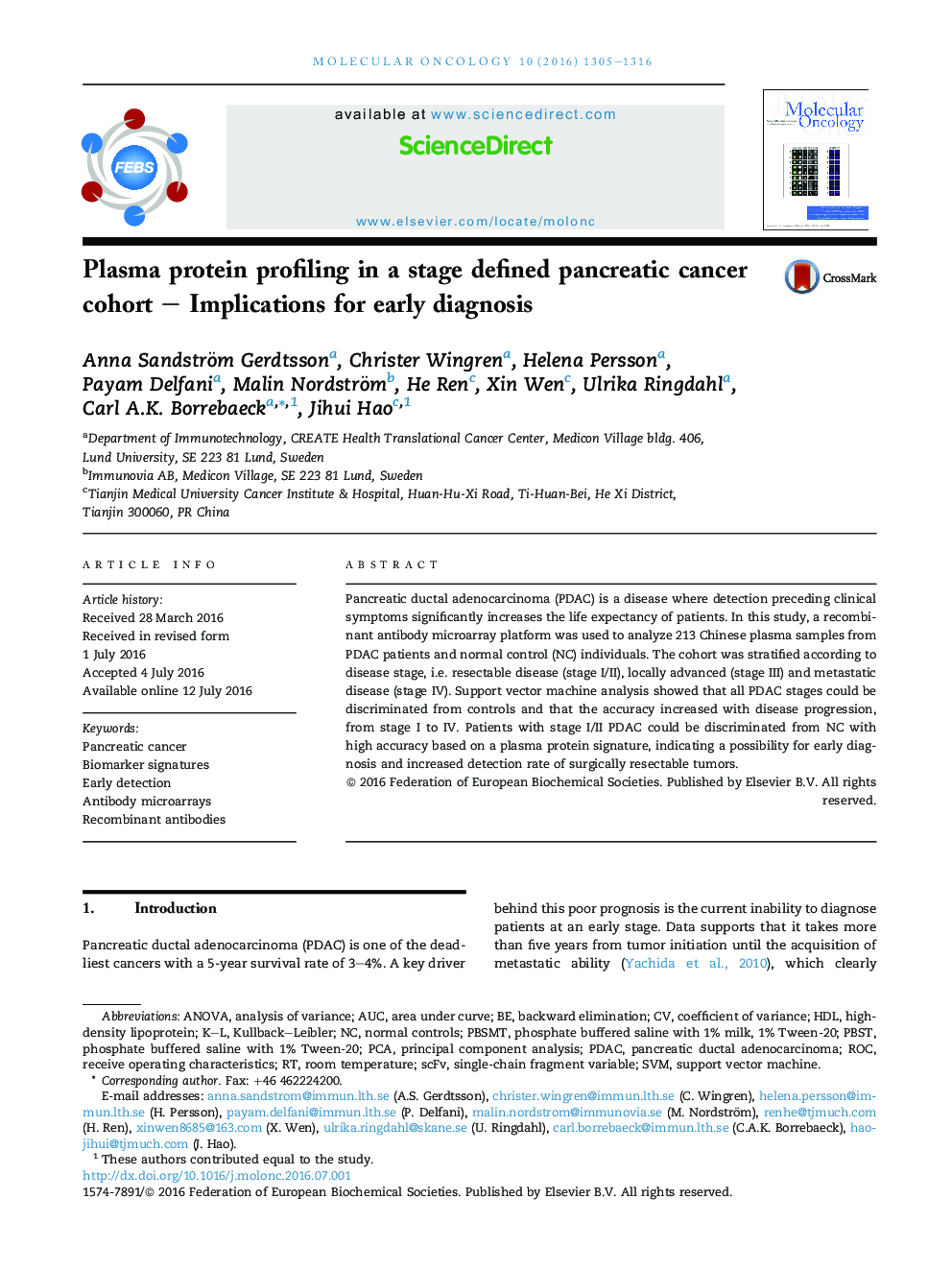| Article ID | Journal | Published Year | Pages | File Type |
|---|---|---|---|---|
| 5528640 | Molecular Oncology | 2016 | 12 Pages |
â¢Blood samples contain sufficient information to discriminate PDAC stages I-IV using multiparametric analysis.â¢PDAC was classified with increased accuracy from stage I to IV. Candidate markers for early stage PDAC were identified.â¢The technical transferability of a recombinant antibody microarray platform was demonstrated.â¢Plasma signatures identified in Chinese PDAC patients correlated to serum signatures in late stage Caucasian patients.â¢A blood test could be utilized for earlier diagnosis and increased detection rate of surgically resectable PDAC tumors.
Pancreatic ductal adenocarcinoma (PDAC) is a disease where detection preceding clinical symptoms significantly increases the life expectancy of patients. In this study, a recombinant antibody microarray platform was used to analyze 213 Chinese plasma samples from PDAC patients and normal control (NC) individuals. The cohort was stratified according to disease stage, i.e. resectable disease (stage I/II), locally advanced (stage III) and metastatic disease (stage IV). Support vector machine analysis showed that all PDAC stages could be discriminated from controls and that the accuracy increased with disease progression, from stage I to IV. Patients with stage I/II PDAC could be discriminated from NC with high accuracy based on a plasma protein signature, indicating a possibility for early diagnosis and increased detection rate of surgically resectable tumors.
